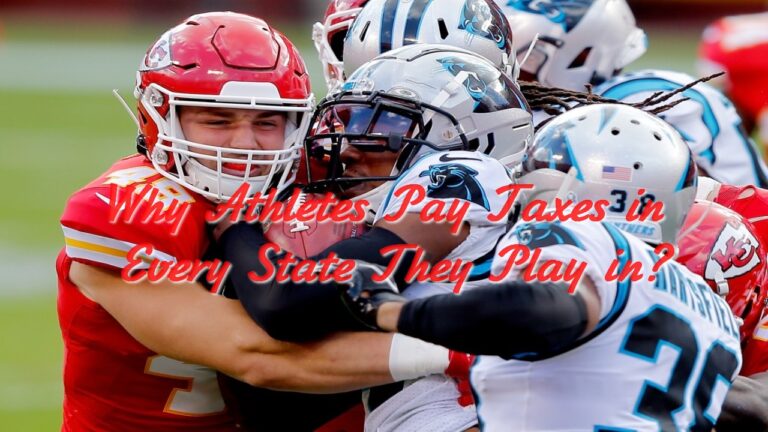Athletes face a unique challenge when it comes to taxation due to the principle of taxation based on both residency and source of income. Unlike many professionals who may work and reside in one location, athletes often perform in various states over the course of a season. The United States operates on a system of dual taxation, where both the federal government and individual states have the authority to levy taxes. Residency rules vary among states, but generally, individuals are considered residents if they maintain a permanent home or domicile in that state. As athletes travel to different states for games and competitions, they trigger tax obligations in each jurisdiction where they earn income. Navigating these complexities requires careful consideration and professional guidance. If you’re an athlete dealing with tax problems, find some helpful information at https://taxhelpusa.com/tax-problems/.
Allocation of Income

The allocation of income is a crucial concept in understanding why athletes pay taxes in every state they play in. Income is allocated based on where the services are performed. For athletes, this means that the income earned from games, endorsements, and related activities is apportioned to the states where they compete. Each state has its own method for determining the portion of an athlete’s income that is subject to taxation, often using a “duty days” or games-played method. This ensures that each state has the right to tax the portion of income attributable to the services provided within its borders.
Jock Taxes
The colloquially termed “jock tax” is a specific type of income tax levied on professional athletes. It is not a standalone tax but rather an application of existing state income tax laws to non-resident athletes. This tax is based on the income earned by athletes for the days they perform services in a particular state. While not every state imposes a jock tax, many do, and the rates and methods of calculation vary widely. Jock taxes have been subject to legal challenges, with some athletes arguing that they constitute an unfair burden. However, courts generally uphold the constitutionality of these taxes, considering them a legitimate way for states to generate revenue from income earned within their borders.
Complexity of Compliance

Complying with the tax laws of multiple states can be a complex and burdensome task for athletes. Each state has its own set of rules and regulations, making it necessary for athletes to keep detailed records of their activities in each location. This complexity extends beyond just the games played; it includes endorsement deals, promotional events, and other income-generating activities. Athletes often need the assistance of tax professionals who specialize in navigating the intricate landscape of multi-state taxation. Failing to comply with these tax obligations can lead to penalties and legal consequences.
Impact on Athletes and the Sports Industry
The taxation of athletes in every state they play in has significant implications for both individual athletes and the sports industry as a whole. From the athlete’s perspective, managing tax liabilities requires careful planning and financial management. The unpredictability of schedules and the varying tax rates among states add an additional layer of complexity to their financial affairs. Moreover, the cumulative effect of taxes across multiple jurisdictions can result in a substantial portion of an athlete’s income going toward state taxes.
From the sports industry’s standpoint, the taxation of athletes in every state contributes to the economic landscape of each host city or state. The revenue generated from events, ticket sales, and related activities during games becomes subject to local taxation. This revenue not only supports the state’s budget but also contributes to the local economy, making professional sports a significant player in regional economic development.
In conclusion, the obligation for athletes to pay taxes in every state they play in is rooted in the principles of residency, income allocation, and the application of state tax laws to non-resident individuals. The jock tax, while controversial, is a manifestation of this taxation framework. The complexity of compliance and the impact on athletes and the sports industry underscore the need for a nuanced understanding of the taxation landscape in professional sports.

